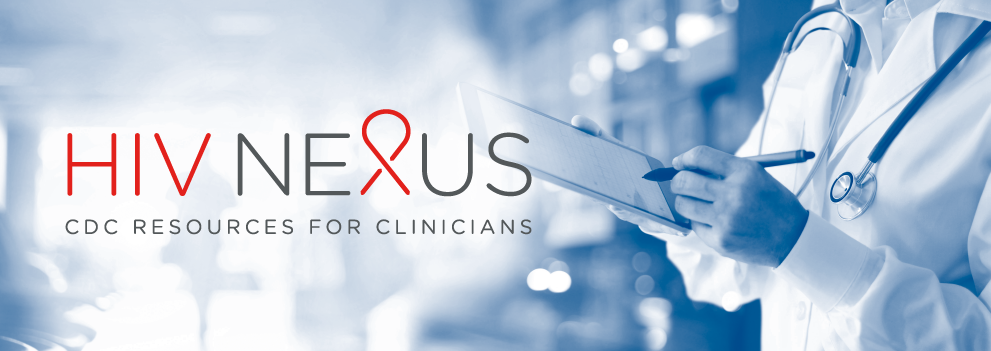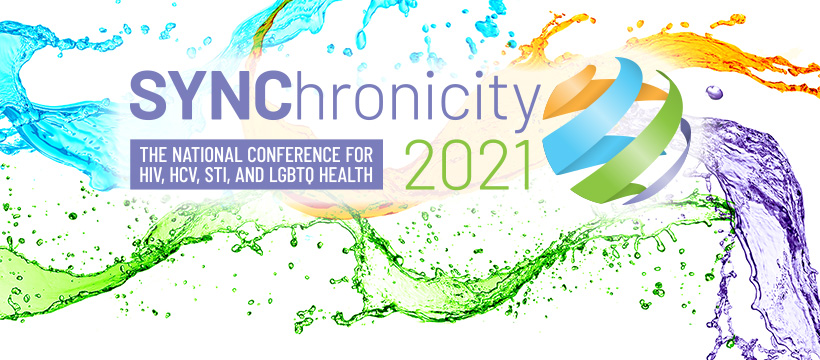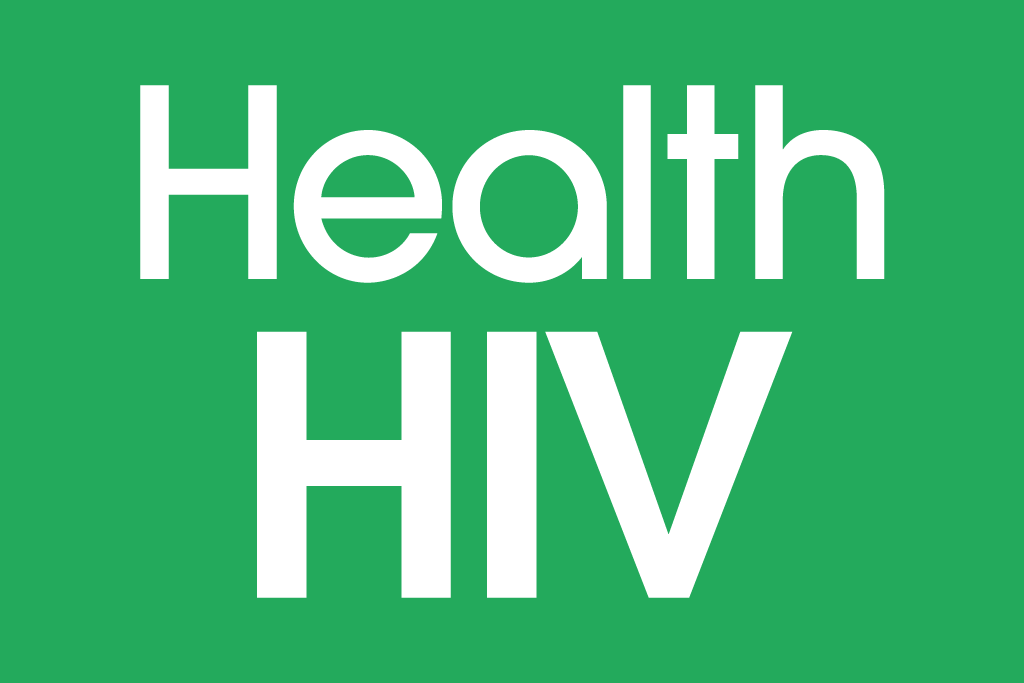The past two years were filled with an unimaginable amount of chaos, stress, and uncertainty for the future. The COVID-19 pandemic alone turned the world upside down; this, coupled with the ongoing and widespread stigmatization of marginalized groups, created much disjointment throughout the world and within various communities. The need for powerful entities working for good to enter into alignment with one another, or SYNC up, has never been more urgent.
SYNChronicity 2021, the 8th Annual National Conference for HIV, HCV, STI, and LGBTQ Health, took place on Sept. 21 and Sept. 22 and took aim at addressing a healthcare field that is out of sync. At SYNC 2021, our nation’s public health leaders, service providers, and community organizers spoke on the various ways in which different sectors of society can come together to end the epidemics that impact underserved communities. Among these sectors are entities such as federal and state governments, health service providers, and transgender and LGBTQ health equity advocates, among others. Through each plenary, session, institute, and poster viewing, attendees were given the opportunity to hear nuanced, well-researched perspectives on solutions to ending various epidemics, while engaging with speakers through live Q&As. Despite this conference taking place in a virtual setting, a large emphasis was placed on cultivating connectivity to audiences behind the screen.
The importance of synchronicity aligns itself closely with Kimberlé Crenshaw’s theory on intersectionality, which states that various identities and social categorizations often coincide, consolidating an overlapping yet unique experience with prejudice and discrimination. Synchronicity relates to intersectionality in the sense that syncing, too, entails the coalescence of various factors and entities to create a unique experience. The difference is, where intersectionality serves as an explanation for these occurrences, synchronization serves as a potential solution.
As a proponent of this idea, I was extremely excited to enter the sessions of SYNC 2021, particularly those that addressed the nuances of uplifting diverse identities. The session on Black women’s health equity, for example, addressed the struggles that Black women face in receiving proper treatment in healthcare facilities. Social determinants such as socioeconomic status, age, and geographic location tend to negatively impact the quality of care that Black women receive, with 39% of respondents reporting that they were treated rudely by staff.
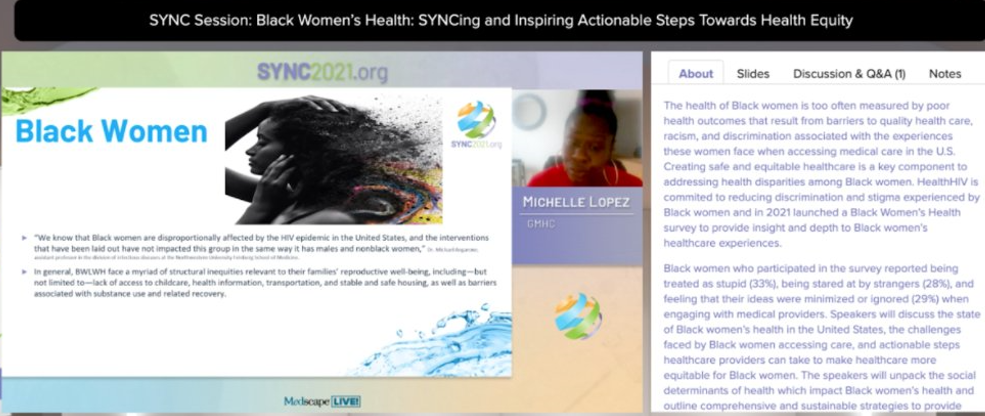
In the plenary entitled “SYNCing to End the Epidemics Through Community,” DeMarc Hickson of Us Helping Us, People Into Living discussed the importance of tailoring one’s approach in addressing an issue to the affected community; in this case, Us Helping Us uses a DC-Maryland-Virginia perspective, particularly that of Black men, to address the HIV epidemic among Black men.
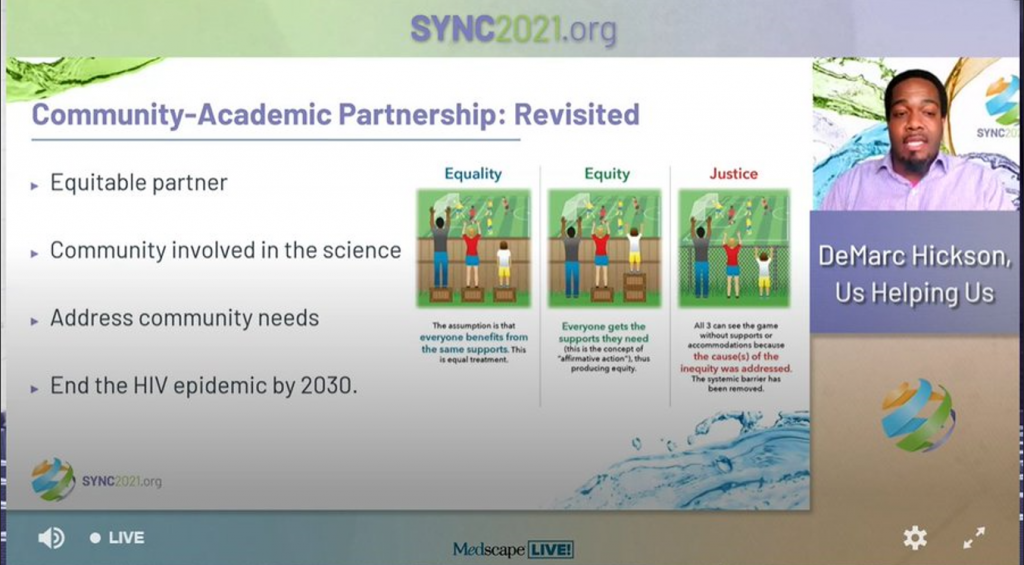
Although the different sessions all address different issues, they each acknowledged the way in which different identities affect how one navigates society and healthcare. This commonality must ultimately serve as the foundation of any effort to address inequities, remedy injustices, or in this case, end epidemics.
The entire SYNChronicity conference can be screened on-demand at live.sync2021.org, and any individual with even an ounce of care for changing this world for the better should certainly tune in. To sync is to become one, and in a world that has been long-disjointed, this feat is more than necessary.
About the Author

Cory Utsey (she/her) is a Communications Intern for HealthHIV and a writer studying journalism at Howard University. With interests in social justice, equity, and entertainment, she aims to uplift the voices, stories, and experiences of underserved communities.


